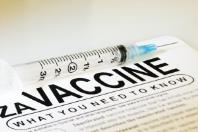
Having an allergic reaction to a vaccine can potentially lead to serious consequences. A severe allergic reaction is known as anaphylaxis, and the effects of anaphylaxis can range from swelling and hives to anaphylactic shock.
So, how can you find out if you are allergic to a vaccine?
Consult with Your Doctor
As with all medical questions, if you would like to find out if you are allergic to a vaccine, you should consult with your doctor. Your doctor can review your medical history, order any necessary tests and determine if you are at risk of having a severe allergic reaction to a particular vaccine.
Review the Vaccine’s List of Ingredients
When someone says that he or she is allergic to a vaccine, what that person really means is that he or she is allergic to a particular vaccine ingredient.
Read more . . .